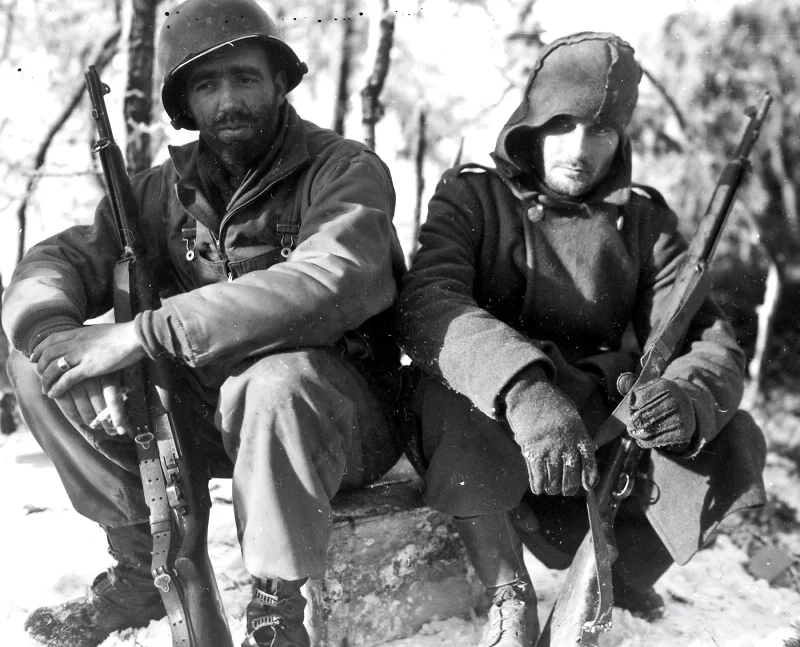In Liberated: A Novel of Germany, 1945, Major Crazy is reborn in the character of Major Robertson Membre, US Military Governor of the small and isolated Southern Bavarian town of Heimgau. My main character, US Captain Harry Kaspar, at first believes his commander the major to be his worst nemesis—as well as the town’s. As Harry will soon find out, the troubles are just getting started.
Liberated might read like fiction, but the story is based on simple truths and historical record. Justifications aside, the early US occupation of Germany was a kind of Wild West where foreign autocrats wielded total power over the native inhabitants like a robber baron over a busted boomtown.
In late spring of 1945, US combat units had secured the war’s unexpectedly calm closure on the frontiers of Southern Bavaria. On the local level, though, the future peace and law and order remained far from clear. Enter the US Military Government (MG) detachments, following the path of US tactical forces into cities and towns, villages and counties that were physically and socially devastated. Amid untold ruin and chaos, broken infrastructure and vaporized authority, the first MG detachments aimed simply to get things going again. Establishing order and ensuring public safety were primary duties. At the same time, MG officers performed a delicate balancing act that varied according to detachment make-up, intelligence on hand, a confusing mix of directives, and the inhabitants’ cooperation. In the first few months, MG officers in the smaller far-flung detachments were often cut off from the world. This demanded self-reliance and inventiveness, but it also invited confusion, scandal and infamy. Some MG commanders made themselves the lords of their helpless, isolated communities. Such types were dubbed the Kreiskönige, or “County Kings,” by fearful and sometimes grateful locals, as their King often beat out rival MG detachments’ communities competing for manpower and precious resources, shelter and food.
I once thought all this would make good material for historical nonfiction. While performing research in Munich years ago as a graduate student on a Fulbright Fellowship, I discovered the example of Miesbach, the unassuming capital of a rural Kreis between Munich and the Alps. US combat units had denied Miesbach’s MG detachment access to the town until May 16, 1945—over a week after the capitulation. What MG detachment officers found there must have given them a shock. The MG report for May 13-20 describes the local population as being highly distressed, because US Military Police were “permitting SS officers and a limited number of enlisted men to remain armed with some freedom” (italics mine). Incredibly, the SS soldiers were able to shoot three civilians while at liberty, including a US intelligence informant. What was more, German army troops stationed nearby were allowed to operate with complete freedom. Their commander, a General von Hahn, reportedly addressed his men that “the war is not lost and another German Army will be formed.”





